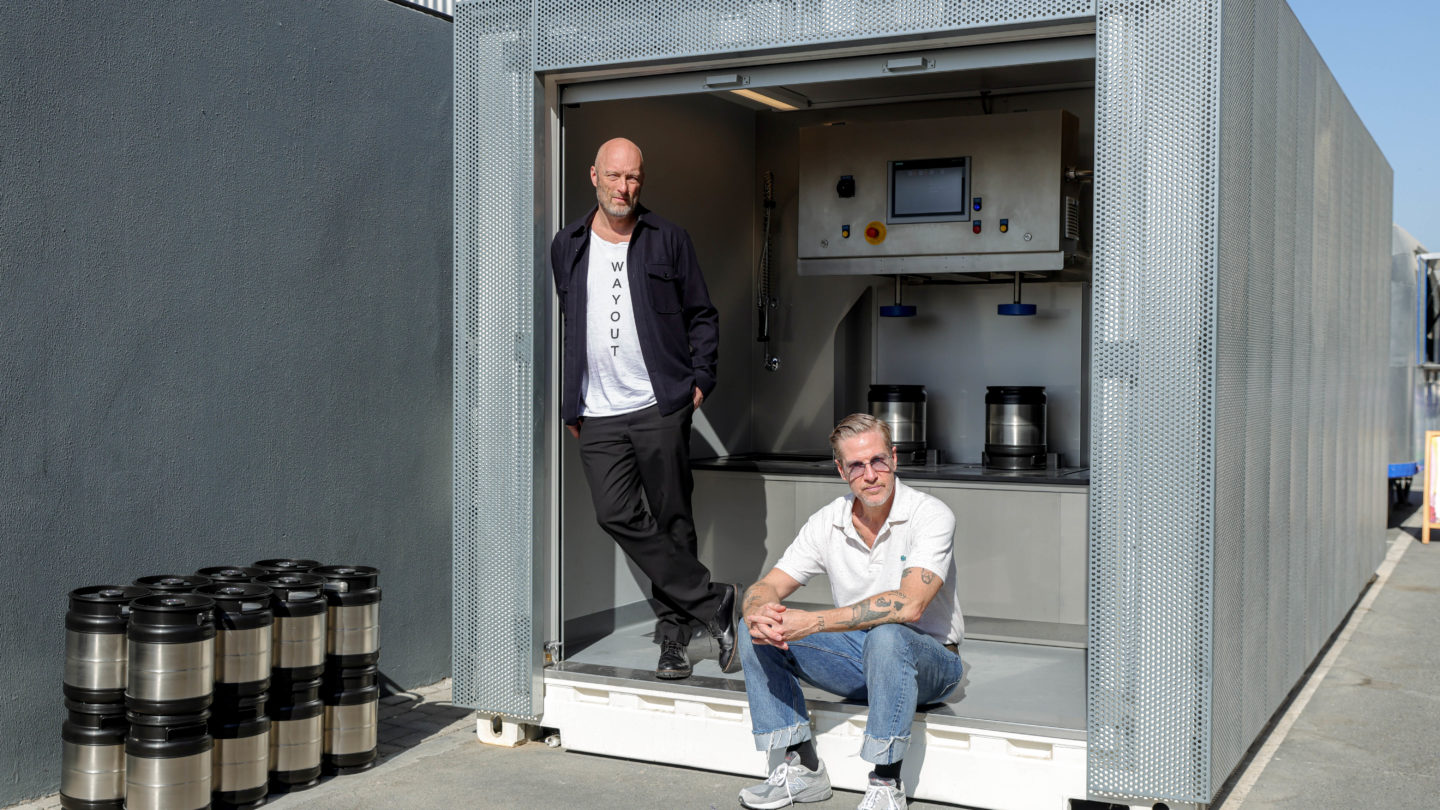“This innovation aims at one of today’s – and the future’s – biggest global challenges: clean water. By using solar cells to purify local water, transport can be cut and packaging waste eliminated. In large parts of the world, the solution is already of vital importance as a local source of safe drinking water, but in Sweden, too, it offers a resilient and commercial alternative for local drinking water supply.” Motivation of the jury.
Wayout started with an idea to build microbreweries in container format – a mobile beer or soda factory in miniature – with the aim of reducing the environmental footprint of beverages by limiting transport and packaging.
Pretty soon, founders Ulf Stenerhag and Martin Renck decided to focus entirely on their invention’s ability to provide clean drinking water from any local water source. Eleven of these micro-factories have now been dispatched from the manufacturing facility at Alfa Laval in Copenhagen. Wayout was launched in 2022 at the World Exhibition in Dubai, reflecting the aim to focus mainly on markets in the Middle East and India.
– The Gulf countries know that in 20-25 years they will ship their last barrel of oil, and today they are investing everything in switching to alternative energy sources, says Renck. They have an intuitive understanding of the need for clean water.
A possible future target group for the micro-factories are the islands in the Indian Ocean that already have major challenges in terms of water supply – islands that Renck calls “the Gotland of the Arab world”, because Gotland is one of the places in Sweden that regularly has problems with the water supply, especially as the dry and hot season coincides with a large increase in visitors to the island.
The very biggest challenge, and the most important role for Wayout’s micro-water factories, is to help ensure that the world’s growing population has clean water to drink and cook with.
– The big elephant in the room, is population growth, says Renck. We are soon to be eight billion people on earth, and we do not have time to build out pipes and cables at the rate required.
In Sweden, the challenges regarding water supply are generally not as great as in many other parts of the world. Here, we have a well-functioning system with drinkable tap water and abundant access to water most of the year – but even here, from time to time, water crises do arise.
– One of the problems is that we Swedes use perfect drinking water for irrigation as well as for flushing our toilets.
Renck also sees a role for Wayout’s micro-water factories in boosting society’s ability to manage emergencies and crisis. Having access to and controlling the supply of local, clean water is increasingly proving to be important for coping with crises such as wars, floods, heat waves and pandemics. Another major problem is that water packaged in plastic leads to littering and the spread of microplastics. In addition, it takes approximately two litres of water to produce the plastic packaging for one litre of water.
– In the Nordics, hotels and restaurants are a future market for Wayout because they have a large turnover of people, and water quality is very important. Future markets also include workplaces, schools, universities and hospitals. In Sweden, the water sources are better, the pipes are more modern, but when we had a pop-up in Kungsträdgården, it turned out that even Stockholm’s municipal water leaves a lot to be desired in terms of quality.
Each micro-water factory has the capacity to produce 9,000 litres of water per day, which is enough for 3,000-4,000 people to drink and cook with. As the factories are local, there is no need to transport packaged water, and the on-site water supply is less vulnerable. The water is 100 percent local and completely clean. All salts and minerals are removed before minerals are added again as needed and to taste. Each micro-water factory reduces CO2 emissions by up to 8 tons and plastic bottle use by 250,000 units.
A team from Circular Gastronomy led by chef and sustainability consultant Johan Gottberg will help Wayout prepare for an installation of a water factory on Gotland.
